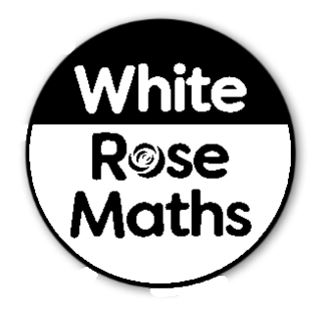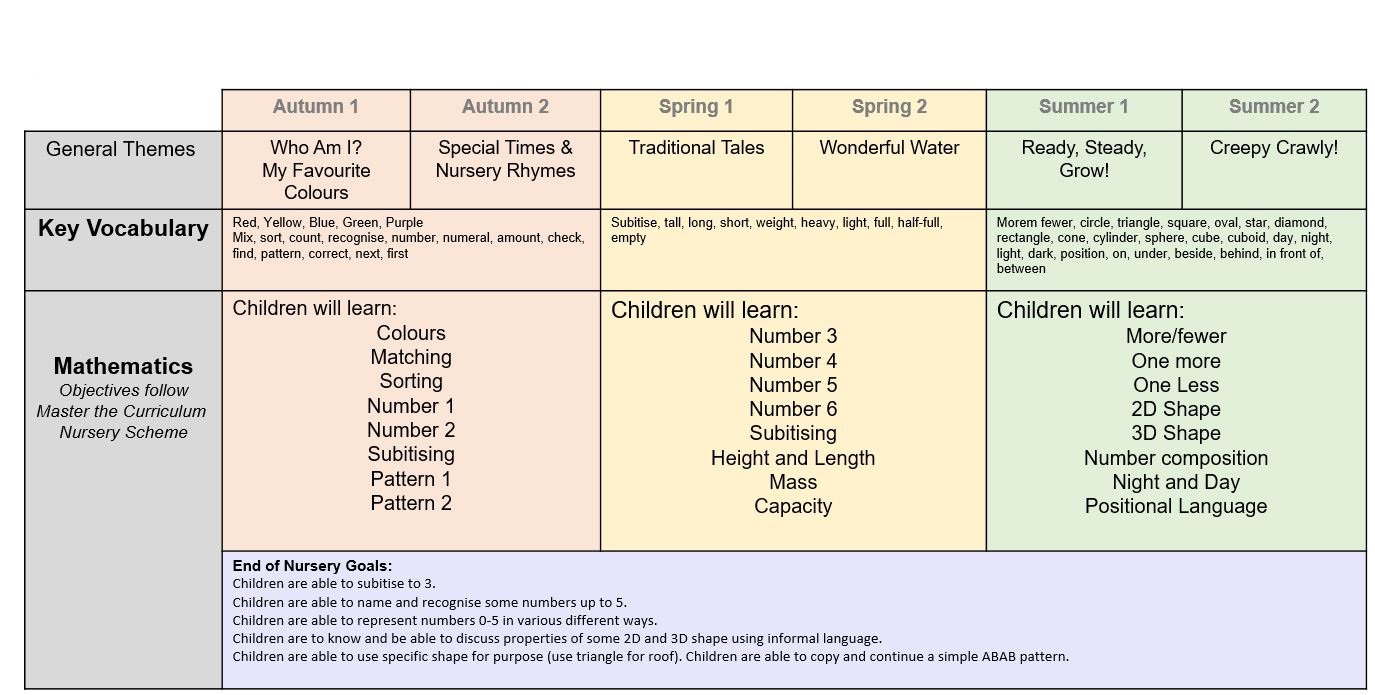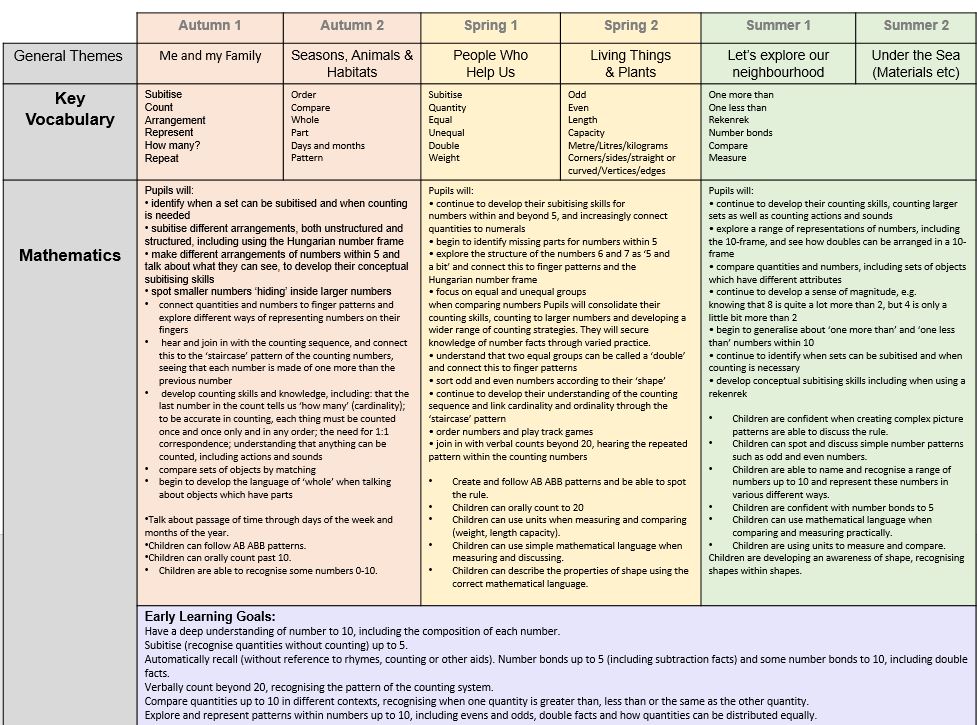Maths
Intent
Why do we teach this? Why do we teach it in the way we do?
At Edlington Victoria Academy, we strive to ensure that all our children are equipped with the mathematical knowledge required to become fluent in the fundamentals of mathematics. This includes varied and frequent practice with increasingly complex problems over time, so that pupils develop conceptual understanding and the ability to recall and apply knowledge rapidly and accurately. Children at EVA will be able to reason mathematically by following a line of enquiry, conjecturing relationships and generalisations, and developing argument, justification or proof, using mathematical language.
All children at EVA have the opportunity to solve problems by applying their mathematics to a variety of problems with increasing sophistication, including breaking down problems into a series of simpler steps and persevering in seeking solutions. At EVA, we want children to see that mathematics surround them every day and enjoy developing vital life skills in this subject. We endeavour to make lessons enjoyable and inspiring, leading children to ask questions, research different strategies and evaluate their learning to enable them to become successful, confident learners.
We also aim to help them to understand why maths is an important part of everyday life. At the heart of our curriculum are our core values (Our EVA Learning Animals), when teaching maths we ensure that the children can develop the skills of investigating, evaluating, collaborating, motivation and resilience as well as understanding the importance of having a growth mindset and reflecting on their journey using the learning pit.
Rationale
- We believe that every child can achieve.
- Small steps build a solid foundation of deep mathematical understanding.
- Pupils’ mathematical fluency should be built without the need for rote learning.
- New concepts will be introduced using the Concrete-Pictorial- Abstract (CPA) approach
- Pupils learn to think mathematically to find patterns, connections and relationships between different concepts.
Concrete, Pictorial and Abstract (C-P-A)
Research shows that all children, when introduced to a new concept, should have the opportunity to build competency by following the CPA approach. This features throughout our schemes of learning.
- Concrete - Children should have the opportunity to work with physical objects/concrete resources, in order to bring the maths to life and to build understanding of what they are doing.
- Pictorial - Alongside concrete resources, children should work with pictorial representations, making links to the concrete. Visualising a problem in this way can help children to reason and to solve problems.
- Abstract - With the support of both the concrete and pictorial representations, children can develop their understanding of abstract methods.
We understand the importance of basic skills as a foundation for all Maths teaching and build basic skills, arithmetic and mental maths into our daily teaching. We also understand the need for children to be able to verbalise their understanding and explain their reasoning coherently. We teach this as a 'being a mathematician' skills and use vocabulary banks and sentence stems to help children build and prepare their answers.
Implementation
What do we teach? What does this look like?
Our whole curriculum is shaped by our Trust and academy vision which aims to enable all children, regardless of background, ability, additional needs, and to flourish to become the very best version of themselves they can possibly be.

At Edlington Victoria Academy, we use the White Rose scheme for Years 1 to 6 to plan high quality, differentiated and interactive lessons, which ensure continuous progression, small step learning and challenge for all learners. Children are introduced to a range of models and images to support them in understanding the concepts of different operations through variation and representation. This allows children build to confidence and fluency in mathematical knowledge, concepts and skills leading to automaticity.
- Teaching for mastery - the research-based schemes of learning are designed to support a mastery approach to teaching and learning and are consistent with the aims and objectives of the National Curriculum.
- Putting number first - the schemes have number at their heart. A significant amount of time is spent reinforcing number in order to build competency and ensure children can confidently access the rest of the curriculum.
- Depth before breadth - easy-to-follow schemes support teachers to stay within the required key stage so that children acquire depth of knowledge in each topic. Opportunities to revisit previously learned skills are built into later blocks.
- Working together - Children can progress through the schemes as a whole group, encouraging students of all abilities to support each other in their learning.
- Fluency, reasoning and problem solving – the schemes develop all three key areas of the National Curriculum, giving children the knowledge and skills, they need to become confident mathematicians.
Our teaching sequences follow the National Curriculum’s guidance on developing three key mathematical skills:
- Fluency - It is essential that children are confident with the fundamentals of mathematics and can recall and calculate number facts rapidly. We strive to provide them with a range of mental and written methods so that they can do this with ease.
- Reasoning - We believe that it is not enough that children know that a method works, but that they are also able to understand why and how it works. Through the use of collaborative discussions with peers, we provide children with the means to demonstrate their understanding and number sense, making connections between different areas of mathematics and justifying their thinking.
- Problem Solving - Ensuring children can apply their mathematical skills to a range of problems is a core part of our teaching sequence. By providing children with increasingly challenging and complex problems and investigations, we develop their resilience and ability to be inquisitive.
To see the content of the mathematics curriculum we follow in each Year Group, please visit; www.gov.uk/government/publications/national-curriculum-in-england-mathematics-programmes-of-study
Teaching for Mastery
As a school, we follow a Mastery approach towards maths in a collaborative network with the South Yorkshire Maths Hub. Teaching for mastery describes a classroom practise which enables children of all ages acquiring a long term understanding of the subject.
Early Number
In nursery, we follow the 'master the curriculum' scheme as we recognise that it is aligned with White Rose Maths and the National Curriculum to set our children up with the basic maths skills that they will need as they progress in to Reception and beyond.
We teach Maths daily for 15 minutes, following the planning progression in both whole class and small group situations. At EVA, we aim for our children to leave nursery with a secure number knowledge to 5, including exploring compositions of each number, representing 5 in different ways and with secure numeral recognition.
In Reception we follow the NCETM scheme as this provides pupils with strong foundations in cardinality, comparison, composition, pattern, shape and space and measures.
We teach NCETM Maths four days per week for 15 minutes, following the planning progression as a whole class. We follow this with a small group application session each week. We also have 4 'carpet maths' sessions per week where we teach basic skills and practise new concepts. At EVA, we aim for our children to leave reception with a secure number knowledge to 10, including exploring compositions of each number, representing numbers in different ways and with secure numeral recognition and formation.
At Edlington Victoria we use ‘Number Sense- Number Facts’ in KS1 a- systematic and structured programme ensures children develop visual models of number, a deep understanding of number and number relationships, and fluency in addition and subtraction facts.
Times Tables
Knowing times table facts and how they work is a fundamental part of Mathematics. They link into many areas of Maths and are essential knowledge to success in later stages of education. The National Curriculum sets out that pupils should know all times tables up to 12 x 12 including inverse division facts by the end of year 4.
We use ‘Number Sense- Times Tables’- The highly visual, research informed programme provides the structure and depth to times tables teaching that children need to achieve fluency in essential multiplication and division facts and concepts. A true Mastery programme, designed to achieve fluency for every child without exception.
Impact
- Children will develop a love of mathematics and talk positively about the subject.
- They will demonstrate a mastery of components by applying different mathematical methods and making connections.
- Our children will be able to have quick recall of all mathematical facts for their year group.
- They will be able to apply their skills to a range of problem solving and reasoning skills.
- The children will show pride in their work, display quality throughout and be confident with our core belief that all will achieve.
Overview
F1 Long Term Plan Mathematics

FS2 Long Term Plan Mathematics
